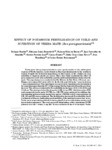Por favor, use este identificador para citar o enlazar este ítem:
http://www.alice.cnptia.embrapa.br/alice/handle/doc/1003635Registro completo de metadatos
| Campo DC | Valor | Lengua/Idioma |
|---|---|---|
| dc.contributor.author | SANTIN, D. | pt_BR |
| dc.contributor.author | BENEDETTI, E. L. | pt_BR |
| dc.contributor.author | BARROS, N. F. de | pt_BR |
| dc.contributor.author | ALMEIDA, I. C. de | pt_BR |
| dc.contributor.author | LEAL, G. P. | pt_BR |
| dc.contributor.author | FONTES, L. | pt_BR |
| dc.contributor.author | NEVES, J. C. L. | pt_BR |
| dc.contributor.author | WENDLING, I. | pt_BR |
| dc.contributor.author | REISSMANN, C. B. | pt_BR |
| dc.date.accessioned | 2014-12-23T11:11:11Z | pt_BR |
| dc.date.available | 2014-12-23T11:11:11Z | pt_BR |
| dc.date.created | 2014-12-23 | pt_BR |
| dc.date.issued | 2014 | pt_BR |
| dc.identifier.citation | Revista Brasileira de Ciência do Solo, v. 38, p. 1469-1477, 2014. | pt_BR |
| dc.identifier.uri | http://www.alice.cnptia.embrapa.br/alice/handle/doc/1003635 | pt_BR |
| dc.description | Yerba mate (Ilex paraguariensis) is a tree species native to the subtropical regions of South America, and is found in Brazil predominantly in the southern region. Despite the historical importance in this region, so far, studies on crop nutrition to improve yields are scarce. Thus, this study evaluated the effect of potassium rates on K soil availability, and the yield and nutritional status of yerba mate. The experiment was conducted in São Mateus do Sul, State of Paraná, on a Humox soil, where K2O rates of 0, 20, 40, 80, 160, and 320 kg ha-1 were tested on 7-year-old plantations. The experiment was harvested 24 months after installation by removing approximately 95 % of the canopy that had sprouted from the previous harvest. The soil was evaluated for K availability in the layers 0-10, 0-20, 10-20, and 20-40 cm. The plant parts leaf fresh matter (LM), twigs (TW), thick branches (BR) and commercial yerba mate (COYM), i.e., LM+TW, were analyzed. In addition, the relationship between fresh matter/dry matter (FM/DM) and K concentration in LM, AG and BR were evaluated. The fertilization increased K availability in all evaluated soil layers, indicating good mobility of the nutrient even at low rates. Yerba mate responded positively to increasing K2O rates with higher yields of all harvested components. The crop proved K-demanding, with a maximum COYM yield of 28.5 t ha-1, when 72 mg dm-3 K was available in the 0-20 cm layer. Yerba mate in the plant production stage requires soil K availability at medium to high level; in clayey soil with low K availability, a rate of 300 kg ha-1 K2O should be applied at 24 month intervals to obtain high yields. A leaf K concentration of 16.0 g ha-1 is suitable for yerba mate in the growth stage. | pt_BR |
| dc.language.iso | eng | eng |
| dc.rights | openAccess | eng |
| dc.subject | Erva-mate | pt_BR |
| dc.subject | Espécie arbórea | pt_BR |
| dc.title | Effect of potassium fertilization on yield and nutrition of yerba mate (Ilex paraguariensis). | pt_BR |
| dc.type | Artigo de periódico | pt_BR |
| dc.date.updated | 2014-12-23T11:11:11Z | pt_BR |
| dc.subject.thesagro | Fertilidade do Solo | pt_BR |
| dc.subject.thesagro | Espécie Nativa | pt_BR |
| dc.subject.thesagro | Ilex Paraguariensis | pt_BR |
| dc.subject.thesagro | Potássio | pt_BR |
| riaa.ainfo.id | 1003635 | pt_BR |
| riaa.ainfo.lastupdate | 2014-12-23 | pt_BR |
| dc.contributor.institution | Delmar Santin, Pós doutorando UFSC; Eliziane Luiza Benedetti, IFSC; Nairam Félix de Barros, UFV; Igor Carvalho de Almeida, UFV; Greice Pereira Leal, ESALQ/USP; Lucas Fontes, UFV; Júlio César Lima Neves, UFV; IVAR WENDLING, CNPF; Carlos Bruno Reissmann, UFPR. | pt_BR |
| Aparece en las colecciones: | Artigo em periódico indexado (CNPF)  | |
Ficheros en este ítem:
| Fichero | Descripción | Tamaño | Formato | |
|---|---|---|---|---|
| 2014APIWendlingEffectPotassium.pdf | 147,16 kB | Adobe PDF |  Visualizar/Abrir |









